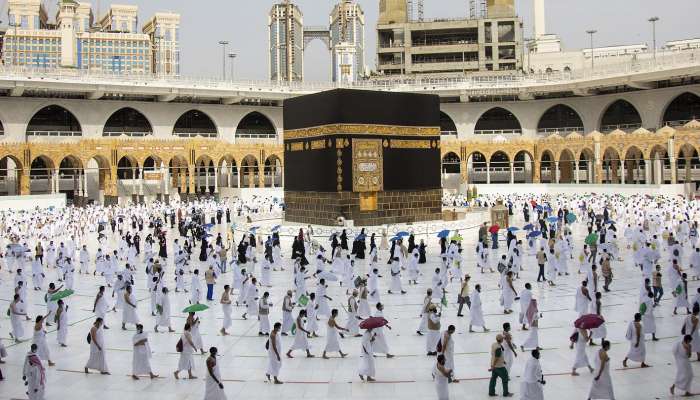
MECCA: My first visit to Mecca is perhaps overdue and with that in mind I am determined to make the most of everything I am here for in these ten days of intense rituals, from the delight of watching birds circling the Grand Mosque, to the fear that I might not reach God’s expectations of performing the Haj the right way.
On my first day, I was deeply humbled when I stood in front of the Kaaba in the Grand Mosque thinking how Abraham might have built it about five thousand years ago. I was equally humbled when, after performing the ritual of circling the Kaaba seven times, to walk between the two hills of Safa and Marwa, which are also within the grounds of the Grand Mosque.
The Muslims around the world follow the footsteps of a simple woman who ran up and down the two hills to look for water for her thirsty baby son, Prophet Ismael. Her name was Hajar and she was the second wife of Abraham. But her humble background compelled me to meditate deep into her life. She came from the most unprivileged background as a domestic helper. Two things were against her before she married the Prophet (PBUH). First, she came from a very low social status. Second, she was a woman at a time when the world looked down at women as insignificant.
But her strong faith in God and the love of her baby boy, made her stronger to overcome her humble beginnings. As I was retracing her feet walking and half-running between Safa and Marwa rocks, I realised the lesson and a powerful legacy she left behind. The kings, powerful politicians, billionaires and the brilliant minds all follow the same footsteps and never stopped doing it for five thousands long years.
It is now permanently etched in my mind how a saintly woman from Ethiopia, whom some learned theologians believe was a mere servant, could have been elevated to a very high status that now we travel for thousands of kilometres to feel her struggle to keep her only child alive.
To me, she is a tribute to all mothers, past, present and future, as well as fathers, to appreciate motherhood and the great responsibility that comes with it. Hajar also is a symbol of family togetherness, not only she kept her son Ismael alive, but by digging a water-well that we now called Zam Zam. It took me close to an hour to finish the ‘lap’ of honour between the sacred hills and I was pretty perched when I walked away to look for water.
I found many thousands of pilgrims queuing up at a couple of hundreds of fountains of Zam Zam water, which Muslims believed to be sacred, to quench their thirst, the same way as Hajar quenched the thirst of her baby Ismael, five thousand years ago, at almost the same spot. As I was lifting the plastic glass towards the cracked skin of my lips, I was in awe with the realisation that it was Hajar who discovered the sacred water that millions of Muslims are queuing up for every year.
I am now looking at the annals of history to find out which woman, in all faiths, creed and race, who came close to the greatness of Hajar, and I cannot find any to equal her, in the world that has always been dominated by men.